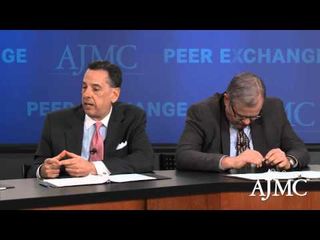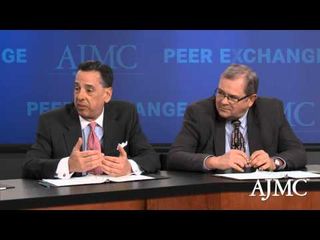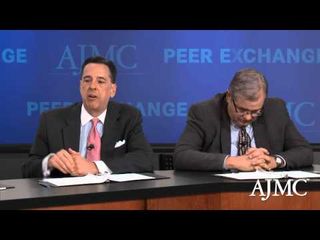
Policy
Latest News

Latest Videos

CME Content
More News


New health privacy rules aim to protect patients and providers in an evolving abortion landscape; some physicians express concerns about efficacy, risks, and entrenched beliefs in treating Alzheimer disease; CMS addresses longstanding staffing deficits in nursing homes.

Moyle v United States centers on whether emergency medical law supersedes state abortion laws; Change Healthcare’s CEO will testify regarding the cyberattack’s impact; public health officials warn of potential threat as bird flu virus spreads in mammals.

Leslie Fish, PharmD, senior vice president of pharmacy at IDP Analytics, LLC, reflects on the future of biosimilars and the impact they will have on managed care pharmacy settings to improve patient access to medications.

The Biden administration recently launched the Global Health Security Strategy, a new effort to combat the spread of infectious diseases; lawmakers zeroed in on the risks of massive consolidation in health care during the first congressional hearing on the Change Healthcare hack; the FDA recently announced the recall of a pair of heart devices linked to numerous deaths and injuries.


News from Strategic Alliance Partners of The American Journal of Managed Care.

Large insurance sales agency call centers are accused of enrolling individuals in plans without consent; more young adults are choosing permanent contraception procedures; widespread frustration with prior authorization requirements hints at potential future measures.
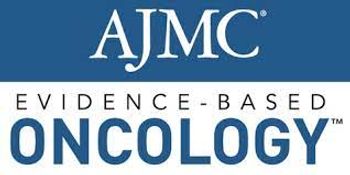


As provider and payer organizations pursue the Quadruple Aim, it is important that they take into account not just the contracting but also the transformation in staffing, clinical workflows, and culture as these organizations evolve.

By prioritizing well-being, both the public and private sectors can come together in partnerships to address social needs and social determinants of health.
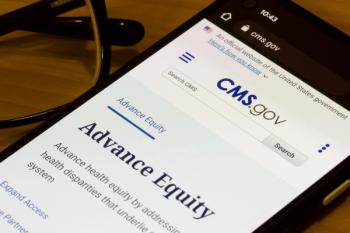
As CMS’ suite of value-based and accountable care models evolves, leaders from across the agency detailed how they are working together to streamline quality reporting and encourage the move to a population health mindset while addressing providers’ concerns.

This feature series delves into how biases shed light on deeply ingrained stereotypes and prejudices that exist within the structure of US maternal health care, according to experts.

Lawmakers are under pressure to decide the fate of COVID-era telehealth payment changes; the CDC reports an alarming increase in sexually transmitted disease (STD) cases among Americans 55 years and older; new regulations aim to reduce harmful exposure to per- and polyfluoroalkyl substances (PFAS), also known as “forever chemicals.”

There is discrepancy between the FDA’s accelerated approval decisions and clinical benefits in cancer treatments; former President Donald Trump’s video statement avoids a clear stance on national abortion legislation; 40% of therapists say they will increase their fees this year.

The annual legislative update at the Community Oncology Alliance Community Oncology Conference identified what Congress may focus on prior to the upcoming election.

CMS finalizes policies to enhance consumer protections, promote competition, and expand access to care for Medicare Advantage (MA) and Medicare Part D; digital therapeutic Rejoyn receives FDA clearance for adults with major depressive disorder (MDD); study reveals minimal symptom reduction from nirmatrelvir–ritonavir (Paxlovid) in high-risk, fully vaccinated patients.

President Joe Biden and Senator Bernie Sanders continue their push to cut the cost of asthma inhalers and prescription drugs in the US.

The newest treatment approved for amyotrophic lateral sclerosis (ALS) will be withdrawn from the market due to negative clinical trial results; former President Trump’s surgeon general is advocating for conservative states to support needle exchanges; new US hepatitis C infections dropped slightly in 2022 after more than a decade of steady increases.

To deliver on the promise of value-based care, organizations need to return to the fundamental objective: to deliver high-quality, affordable care to our communities.

Antismoking groups sued the US government over the long-awaited menthol cigarette ban; the fill rate for Adderall and Vyvanse dropped more than 10% in 2 years despite soaring demand; the Biden administration has responded to offers from the manufacturers of drugs selected for Medicare pricing negotiations.

Insurance plan members find themselves involuntarily switched between plans; the Senate investigates patient safety concerns resulting from private equity practices; base payments to Medicare Advantage (MA) plans will decrease in 2025.

Engaging specialty physicians is an emerging area of focus for Medicare accountable care organizations. Enhanced data on specialist costs and outcomes are essential to addressing alignment challenges.

On this episode of Managed Care Cast, we're talking with Dennis Scanlon, PhD, the editor in chief of The American Journal of Accountable Care®, about prior authorization, price transparency, the impact of health policy on the upcoming election, and more.







